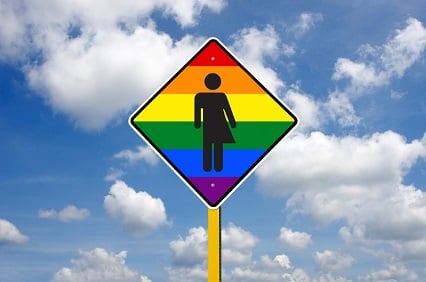

A Sydney-based travel insurer has released a world map that shows how tolerant – or hostile – countries and territories are to lesbian, gay, bisexual, transgender, and intersex (LGBTI) people.
The move comes as Indonesia mulls over a total ban on gay sex and amid abuses against LGBTI people, including the recent public shaming of a group of transgender hairdressers, that have turned Australians off from visiting the southeast Asian nation and its famous tourist hotspot, Bali.
But as Travel Insurance Direct's travel map shows, it's not just Indonesia where LGBTI travellers could be at risk, as there are 72 countries that criminalise same-sex relationships – including eight where homosexuality is punishable by death. In dozens others, can land them in jail, news.com.au reported.
The world map illustrates which countries have laws that will affect LGBTI travellers and what attitudes they can expect.
Countries in red, including large swathes of Africa, the Middle East, and parts of Asia, are likely to be the biggest danger zones for LGBTI travellers, as these regions outlaw homosexuality; while those in orange, including Vietnam and Madagascar, have no laws against homosexuality but are considered intolerant towards LGBTI people.
Orange countries “have never enacted legislation specifically outlawing it,” travel expert Phil Sylvester from Travel Insurance Direct told news.com.au. “It’s perhaps more accurate to describe the legal situation as ‘not officially illegal’ — excuse the double negative. [Travellers can] expect discrimination, prejudice, and harsh treatment by officials and society as a whole. For lack of an official law these places would be marked red, too.”
Yellow countries, such as China, Russia, Turkey, and Indonesia (except its province Aceh), “have legalised homosexuality, but there is no other protection for the LGBTQI community” and are “often open [to] societal hostility,” Sylvester said.
Green countries, such as Mexico, Thailand, and parts of eastern Europe, have legalised homosexual acts and offer legal protections for LGBTI people; while blue countries, including Italy, Poland, Greece, the Czech Republic, and Chile, have also legalised homosexuality but still have ways to go when it comes to putting all protections in place.
Purple countries, such as Australia, New Zealand, the UK, the US, Canada, Brazil, South Africa, and many countries in northern and western Europe, have legalised same-sex marriage and generally protect the rights of LGBTI people.
“Of course, you may still encounter individuals with intolerant attitudes, but mostly the society is accepting and inclusive,” Sylvester said.
National laws and local attitudes match don’t always match, which can be quite confusing for travellers – such as in in Russia, where despite “legalising homosexual sex between men in 1993 (lesbian sex has never been illegal), in practice, you risk violence and discrimination if you are openly gay,” Sylvester told news.com.au.
There are also countries that may not have anti-gay laws but have other laws that may be used to target the LGBTI people, the Department of Foreign Affairs and Trade warned.
For information on specific countries, travellers can visit DFAT’s Smartraveller website, the report said.
